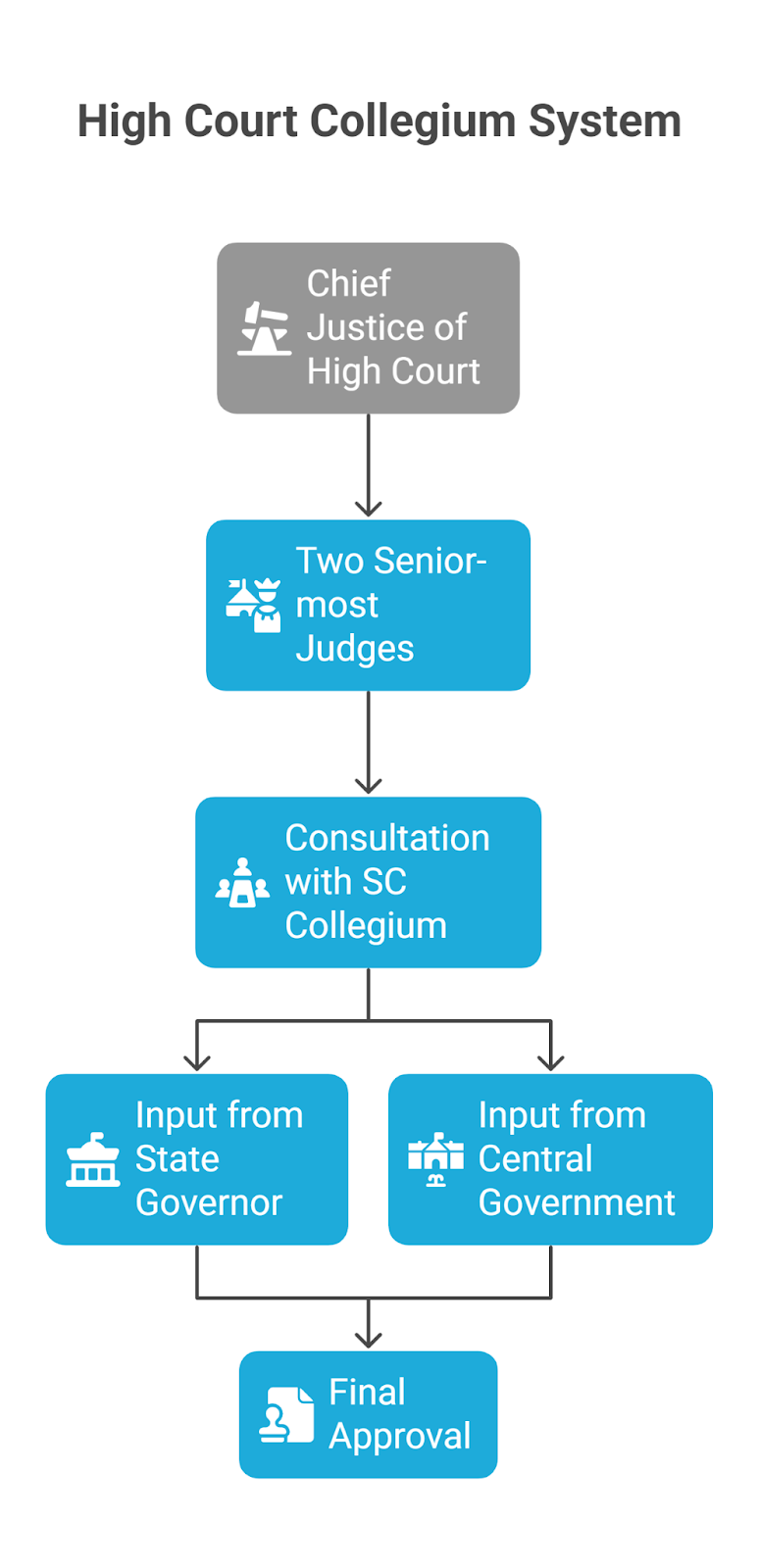Font size:
Print
Supreme Court Collegium Cannot Dictate Names to High Courts
Context: On August 15, 2025, Chief Justice of India (CJI) B.R. Gavai clarified that the Supreme Court (SC) Collegium cannot impose names on High Court (HC) Collegiums for judicial appointments.

What Are the Functions of the High Court Collegium System?
The High Court Collegium System is responsible for:
- Recommending names for the appointment of judges to the High Court.
- Evaluating the suitability of candidates (including district judges and advocates).
- Consulting with the Supreme Court Collegium and the central government before finalising appointments.
- Reviewing proposals for elevation, transfer, or removal of judges.
- Ensuring transparency in judicial appointments, though critics argue the process remains opaque.
Does the Autonomy of the High Court Collegium Ensure an Integrated Judiciary?
- Federal Balance: CJI Gavai stressed that HCs and SC are constitutional equals, ensuring decentralised decision-making.
- Checks & Balances: HC Collegiums act as first-level filters, preventing unilateral SC control over appointments.
- Delays & Friction: Government delays in clearing recommendations (29 pending since 2022) create vacancies. Selective appointments by the Centre have led to tensions with the judiciary.
- Global Comparison: Unlike the UK (where an independent Judicial Appointments Commission exists), India’s system lacks statutory backing, leading to executive-judiciary tussles.
